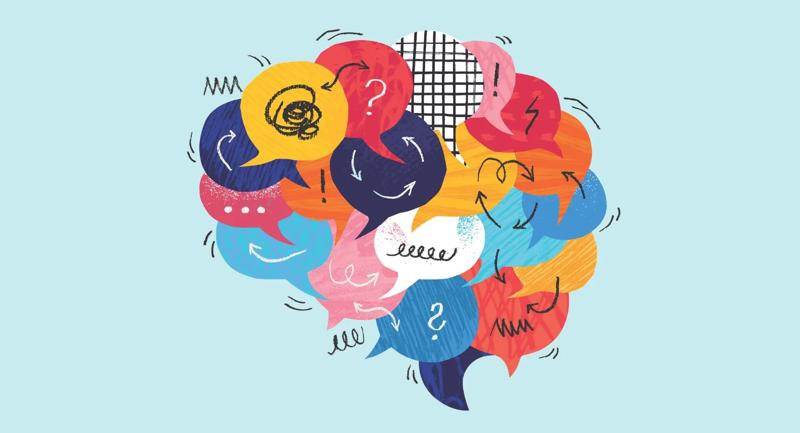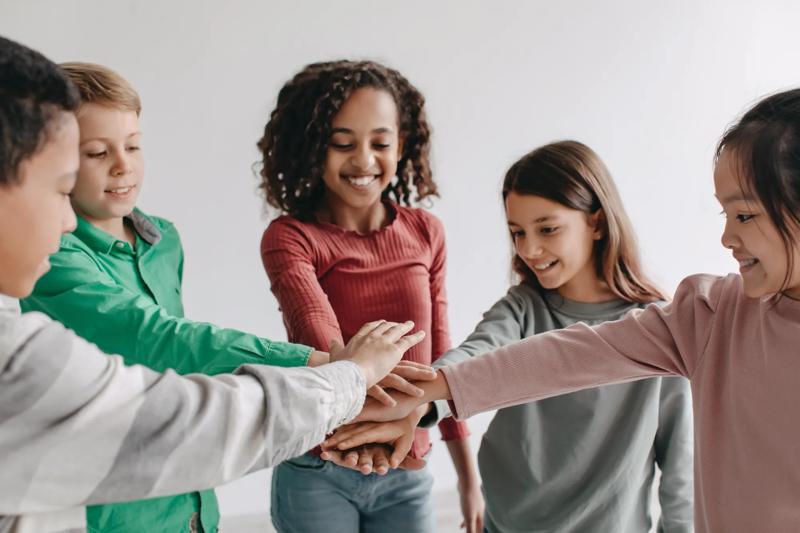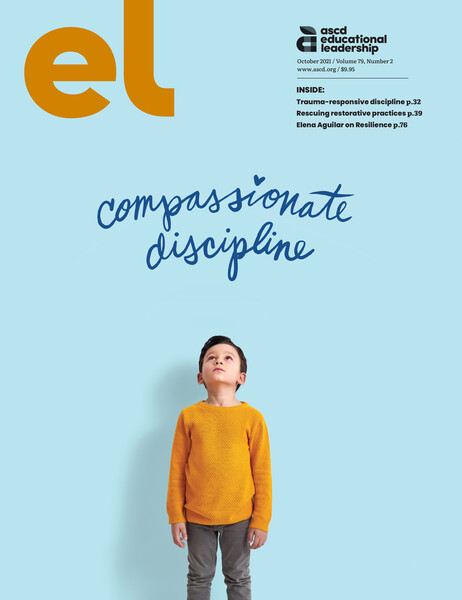I've not checked and rechecked the wording of my prompts for implicit or explicit bias, I've not anticipated possible conflicts between students. I've not gathered up sources to contextualize various points that might be made. Essentially, I am flying blind. I've heard that when rookie pilots fly into a cloud, they can get so confused that they don't trust their instruments. In such cases they've been known to fly out of clouds completely upside down. Or worse, they instinctively keep climbing to avoid hitting the ground, which causes their plane to stall out—then crash. (p. 242)
October 1, 2021
•
5 min (est.)•
Vol. 79•
No. 2Classroom Conversations / The Problem With "Pop-Up" Discussions
In addressing current issues in the classroom, planning and deliberation still matter.

We all know the scene. We've wept at it during the last five minutes of romantic comedies, when one of the leads pulls out a carefully crafted love note, takes a steadying breath, then rips it up and "speaks from the heart." We've cheered at the climax of political dramas when the candidate stands at the podium, looks out at the crowd, closes her eyes, and announces that she'll be ignoring the teleprompter. These scenes highlight the arc of a character's development—the moment when they finally have the courage to be honest. The implication, of course, is that the prepared remarks are fake, or at the very least that they represent the character's less authentic response to an urgent moment.
Teachers are familiar with this privileging of spontaneity. In college, we learned the urgency of the "teachable moment." In many of our professional lives, especially over the past year and a half, we have been encouraged to take dramatic, righteous stands on equity issues right now. The day after something big happens (a big ruling, a shooting, an insurrection), we are supposed to walk into class and, essentially, rip up the script. What we do next, for some, reflects our commitment to equity, our care for our students, and especially nowadays, our respect for the truth. If we move forward with our carefully planned lessons, we are, in many people's estimation, a fraud.
I acknowledge that there are times when we should abandon our planned curriculum and lead students through a "pop-up" conversation, which I define as one that exists independent of our more deliberate planning processes. Sometimes what has happened either in the world or in our school is so big, or unsettles our students' psyche so violently, that to ignore it would be irresponsible. However, these times are much less common than we might think, and ripping up our script (and by this metaphor, I'm referring to our authentic, student-centered lesson plans, certainly not any "scripted curriculum") has its own consequences.
First, unplanned hot-button discussions can put students in a position to unnecessarily harm each other. Especially when they are framed as debates. True debates need to be preceded with research, with preparation, with practice on students' argumentation. Kids who are unprepared for difficult discussions often embarrass themselves and say things they regret or don't mean. They are more likely to weaponize stereotypes. They personally attack classmates because they are ill-equipped to substantially engage opposing ideas. The fresher the moment, the rawer students' emotions might be, which makes some personality types more likely to ignore all but the most well-drilled classroom norms around respectful discourse. So now, a student who feels viscerally connected to the issue might curse out any classmate who approaches the issue from cold, dispassionate academic distance. And boom, now they are in trouble, when we unnecessarily sparked the whole thing by throwing unprepared kids into an impromptu argument.
Unplanned hot-button discussions also put us in the position to harm students in ways that are no less damaging just because they are unintentional. Ignoring our professional training might even turn us into an active threat not just to our students' psychological well-being, but to constructive classroom discourse. In my book Not Light, But Fire (Stenhouse, 2018), I detail how a lack of preparation for a classroom discussion can undermine much of the hard work spent building kids' trust in my pedagogy:
We are at our best when we can reflect upon and edit our discussion prompts. This way we don't accidentally word a prompt in a way that disparages a students' culture, or sets up a false dichotomy, or any of the other mistakes we make when we write prompts on a napkin or a notes app five minutes before class. We are at our best when we can connect with colleagues that we trust, asking what they would do if a student says X or Y. This way we don't snap on a kid who says something we didn't expect in the moment and then kick ourselves later for our lack of anticipation.
Finally, ripping up the script makes us vulnerable to attack from a legion of bad actors. If our haste leads us to make any of the mistakes that I've mentioned, many people are eager to tell the world all about it. Now, in some communities, a random social media complaint about your class is likely to end up on the school board's agenda—or on the local news. Now, instead of an awkward next-day apology to the class, we might well have to face FOIA requests from irate parents who think we are nefariously trying to indoctrinate their kids. Put simply, if we don't have a clear plan for conversations on controversial topics, we are putting both ourselves and our schools at risk. We make it really hard for good administrators to have our back when we fly blind.
Pop-up conversations, then, are overrated. In my rough estimation, just about all of the events and issues that fuel them are better addressed by working them into the "script." Be deliberate about how you fold in an issue or event that everyone says you have to address now. Maybe set aside that satirical column on vaccine hesitancy you think would spark on-the spot "debate" and instead layer it into a powerful satire unit alongside A Modest Proposal. Maybe download and file away that controversial local news clip, even if you don't yet know what to do with it. A connection to your curriculum might emerge when you least expect it. If a current event is especially seismic, like a big Supreme Court decision, maybe even use it to frame a standalone unit that checks every box, from state standards to your school's mission statement. Make it that much harder for bad guys to land punches. (I've done this, and the resulting Case Law unit is far and away my 10th grade students' favorite.)
If we want to teach about an issue, we should actually teach about it—giving ourselves the time to be our best selves and apply our best training. And we might even do this with a little bit of swagger, knowing that while it takes nothing for folks who don't know our students to rush us to discuss some issue, it takes wisdom for us to discern the best moment to get after it. And while it takes nothing to pontificate about what makes our professional reaction to big moments "real" or "fake," it takes skill for us to execute approaches that authentically engage our students and help them learn more deeply.






